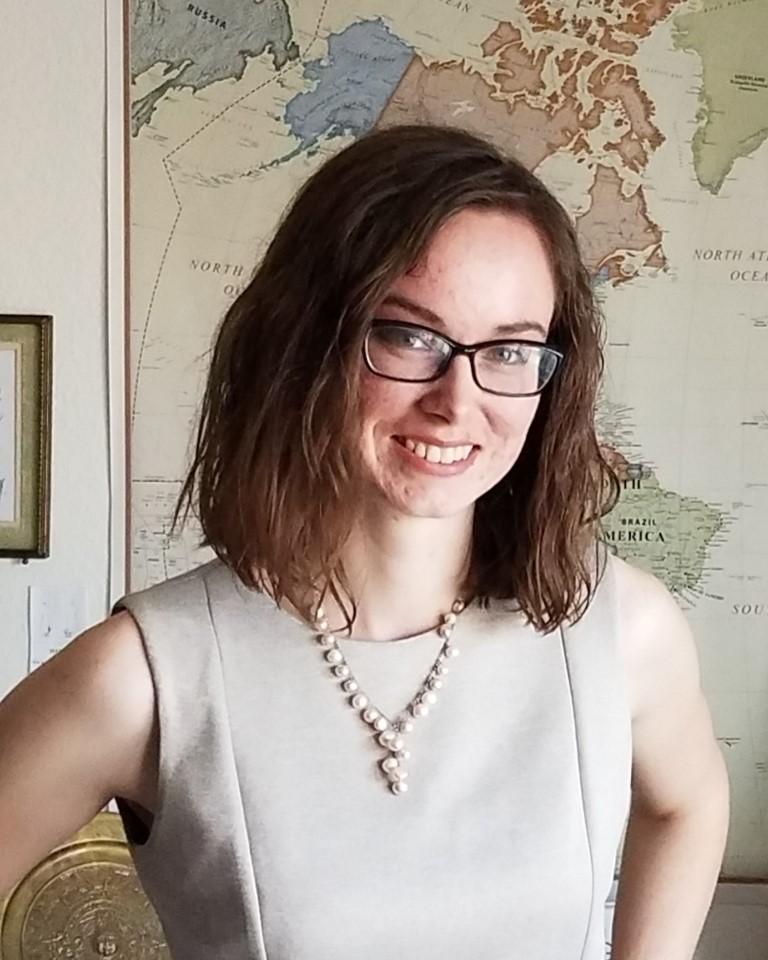Elise Klaske

Student Spotlight | March 2019
Major: History, Western Civilization focus
Describe your research/creative work in just two sentences that we can all understand. I am investigating whether or not American Protestant nativism contributed to the decline of the Montessori Method's popularity in the early 1900s. The founder, Maria Montessori, an Italian Catholic woman, became a celebrity overnight and was forgotten just as quickly - did her nationality and religion have something to do with it?
Q: Who mentors your project?
A: Jonathan Hagel, PhD, an assistant teaching professor in the History department, is mentoring this project.
Q: What surprised you about doing research?
A: I was surprised by how hard it was to narrow down my topic and keep it narrowed down! At the beginning of the semester, I knew I wanted to do something about the Montessori Method, since I am a certified Montessori teacher. However, getting it to this specific time period and this specific subject took the better part of the fall semester. Also, as I go along doing research, I keep finding other interesting paths to take (such as Dr. Montessori’s relationship with the Catholic Church, her personal relationships, and the American celebrities who took up her cause), but I have to remain focused and on track.
Q: What did you find most challenging about getting involved in or doing your project? What advice would you offer to students facing similar challenges?
A: The most challenging part has been finding resources for my topic. While I can find a lot of sources about American nativism and a lot of sources about the Montessori Method, there is not a lot connecting the two. Another hurdle is that many scholars of the Montessori Method are Italian and publish their papers in Italian, which I do not speak. For other students facing these hurdles, I would first say: lean on your librarian. Librarians are some of the best qualified people to find elusive research, even if they don’t have a lot of experience in your field. Secondly, don’t be afraid to tap into other resources. In my case, I have friends that speak Italian. One of them is the president of an Italian club at her university and they were looking for some higher education papers to translate. It was perfect!
Q: What do you like most about your project?
A: I love the breadth of my project. So many interesting things were happening in the early 1900s and somehow they were all connected to each other. The Child Labor movement, Imperialism, the Titanic, Alexander Graham Bell - they all are connected to the Montessori Method somehow, and I feel like a detective discovering it all.
Q: What advice would you give to a friend wanting to get involved in research?
A: If I had a friend wanting to do research, I would suggest they read one book that discussed their topic broadly and two books or articles that discussed it specifically. Try to do this basic research early on, so you can find new routes to explore and avoid reinventing the wheel.
Q: How do you spend your time when you're not working on your research?
A: When I’m not working on my project, I typically have other homework to do. When I am ignoring my homework, I like to watch YouTube videos about film theory, go to local events (like Science on Tap from the KU Biodiversity Institute or Story Slam at the Lawrence Arts Center) or read children’s books. I last read Chitty Chitty Bang Bang because I wanted to see what differences there were between the book and the movie. (Hint: so many.)